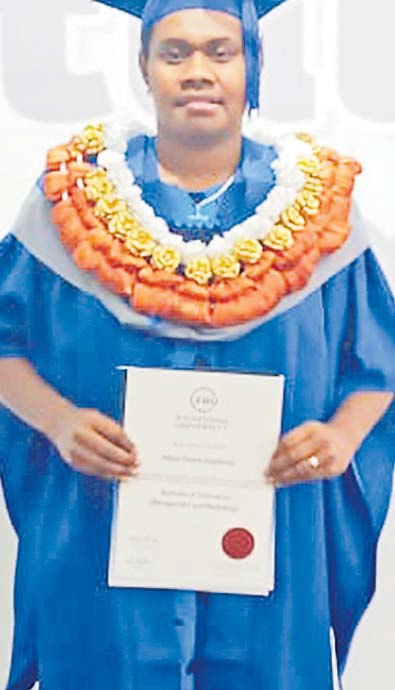FEW weeks ago, I raised concerns about the removal of medicine and dentistry courses from tertiary loan and scholarship.
I argued that tertiary loan scheme has provided access to many students from poor backgrounds to attain higher education qualification.
The Tertiary Scholarship and Loans Board (TSLB) has announced that hospitality and aircraft engineering courses will also be axed from the loan scheme and a review is in progress.
These are major decisions made without any consultation with key stakeholders including students. Fiji’s economy is highly dependent on tourism and hospitality.
One would think that policy-makers would provide more incentives for people to take such courses to improve the chances of employment and upskilling in the context of a post-COVID economic revival.
Over the last few weeks, the Attorney-General has directed the TSLB to complete the review with recommendations.
TSLB plays an important role in improving the access of students to tertiary education.
It is critical that the membership of TSLB has the right skills set to provide advice and recommendations on policies that will improve access to tertiary education and improve employment outcomes of students to help revive the economy.
TSLB also needs to be cognisant of international developments happenings in neighbouring countries where policies are implemented to help young and mature age students to access tertiary education.
In past, I have argued that Ministry of Education, Heritage and Arts needs to strengthen its leadership in tertiary education.
TSLB comes under the leadership of the Minister of Education, Heritage and Arts. It is critical that the minister keeps an oversight on the decisions and recommendations made by TSLB.
TSLB needs to revert its policies to provide access to students in all courses including medicine, dentistry and others.
Rather than axing courses, policy incentives to encourage students in certain courses could be implemented.
Such incentives will provide greater choice to students to undertake courses that align with their career aspirations and employment outcomes.
TSLB also needs to focus its attention on evaluating the success of loan and scholarship and identifying ways to improve the access and success of students from all backgrounds.
A student from Nasarowaqa Village in Vanua Levu completed her bachelor’s degree in commerce over a seven-year duration.
Nasarowaqa Village has existed since 1800, however, Ateca Kabakoro is one of the very few from the village that has attained tertiary education. 2021 marks a major milestone for the people of Nasarowaqa.
Ateca has broken the glass ceiling by being one of the first females from Nasarowaqa Village to succeed in tertiary education attainment.
Ateca is one of the many stories in Fiji which we all can celebrate and be proud of. Her case study provides just one example of how government loan and scholarship can alleviate poverty in remote regions.
While we can celebrate the achievement, we have a long way to go to provide access to first in family students in elite courses such as medicine.
History suggests that most first in family students are enrolled in courses such as nursing and teacher education. There are no policies that are aimed at improving the access and success of disadvantaged students in courses such as medicine and dentistry.
The TSLB needs to introduce policies that target first in family students in tertiary education. Policy reforms which are aimed to improve the access and success of first in family students will improve social mobility and other outcomes.
While the government provides funding and support for tertiary education, there is strong evidence to suggest that TSLB, universities and Fiji Higher Education Commission are failing to monitor education outcomes of students.
There is evidence to suggest that in some universities there is failure rate of more than 45 per cent in first year subjects during COVID semesters.
Many first-year students who failed all subjects are first in family students who may not return to study.
Their transition from high school to university with poor online learning experience and lack of academic support has resulted in failure. These students will have debt on their name which they will not be able to pay back.
TSLB needs to focus its attention on strategic issues aimed to widening the access of disadvantaged students with focus on first in family students.
TSLB and Fiji Higher Education Commission also need to monitor the educational outcomes of first year students who are on loan and scholarship scheme to ensure that public spending on tertiary education results in positive outcomes.
- Mahsood Shah is a Professor and Dean at Swinburne University of Technology, Australia. The views expressed are his own and do not reflect the views of the university or this newspaper. Readers can contact Mahsood at shah_mahsood@hotmail.com



